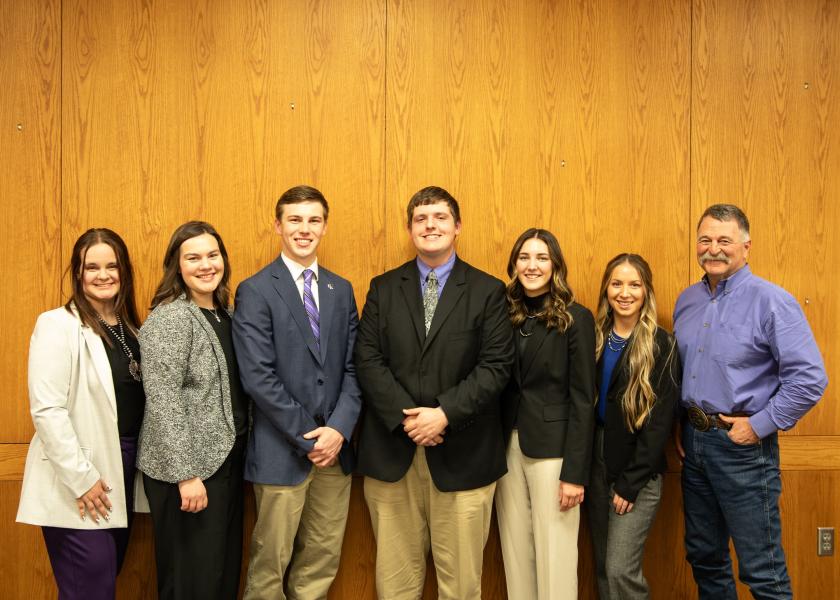Six Elite Undergraduates Awarded Henry C. Gardiner Scholarships

Henry C. Gardiner scholarships have been awarded to elite undergraduates since 2012. This year, 33 applicants competed for six scholarships. The applicants represent diverse interests throughout animal science and industry, production agriculture and the beef industry.
The applicants are academically elite undergraduates enrolled at K-State planning to continue careers in agriculture. In addition to written applications, applicants compete in an intense, in-person interview with a panel of K-State faculty and industry leaders. Academic excellence, work ethic, community service, written and verbal communication skills and future goals are considered.
The 2024-2025 Henry C. Gardiner Scholars are Lauren Thompson, Woodville, Wisconsin; Grace Fike, Westmoreland, Kansas; Preston Dunn, Saint John, Kansas; August Hulse, Culver, Kansas; Katrina Turner, Derby, Kansas; and Kiley Andersen, Sebastopol, California.
When asked to comment on the Henry C. Gardiner scholarship process, Mark Gardiner said, “The entire agriculture spectrum has evolved from ‘Mom and Pop’ operations passed down from one generation to the next, to complex systems that require fiscal and financial aptitude, and communication skills combined with the capacity to make science based, informed decisions to be sustainable. It is extremely gratifying to interact with every scholarship applicant each year and quickly recognize the power and presence these students possess to make a generational impact on our industry. Henry Gardiner’s passion for learning is well documented. He would be elated at the curiosity, academic achievements, and enthusiasm exhibited by today’s scholarship recipients.”
The Henry C. Gardiner Scholarship is made possible through the generous contributions of Gardiner customers, friends and family continuing the legacy of Henry Gardiner. To date,
54 undergraduate students have received $250,500 in scholarships.
Gardiner Angus Ranch is a family-owned ranching operation that produces registered and commercial Angus cattle. The original ranch was homesteaded near Ashland, Kansas, in 1885 by Henry Gardiner’s grandfather. Today, the ranch encompasses more than 48,000 acres. The Gardiner operation sells approximately 2,500 bulls and 2,000 registered and commercial females each year. One hundred percent of the sale offering each year is the result of artificial insemination or embryo transfer.
Gardiner Angus Ranch is a founding member of U.S. Premium Beef, the producer-owned limited liability corporation with minority ownership in National Beef, the nation’s fourth largest beef processing company. By providing access to a proven, value-added processing system through GAR delivery rights, Gardiner Angus Ranch customers have received more than $14.25 million in premiums and dividends.
More information can be found at www.gardinerangus.com.







